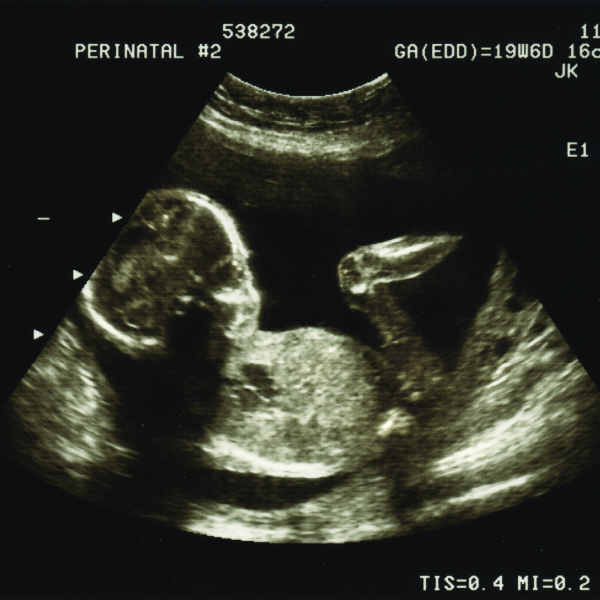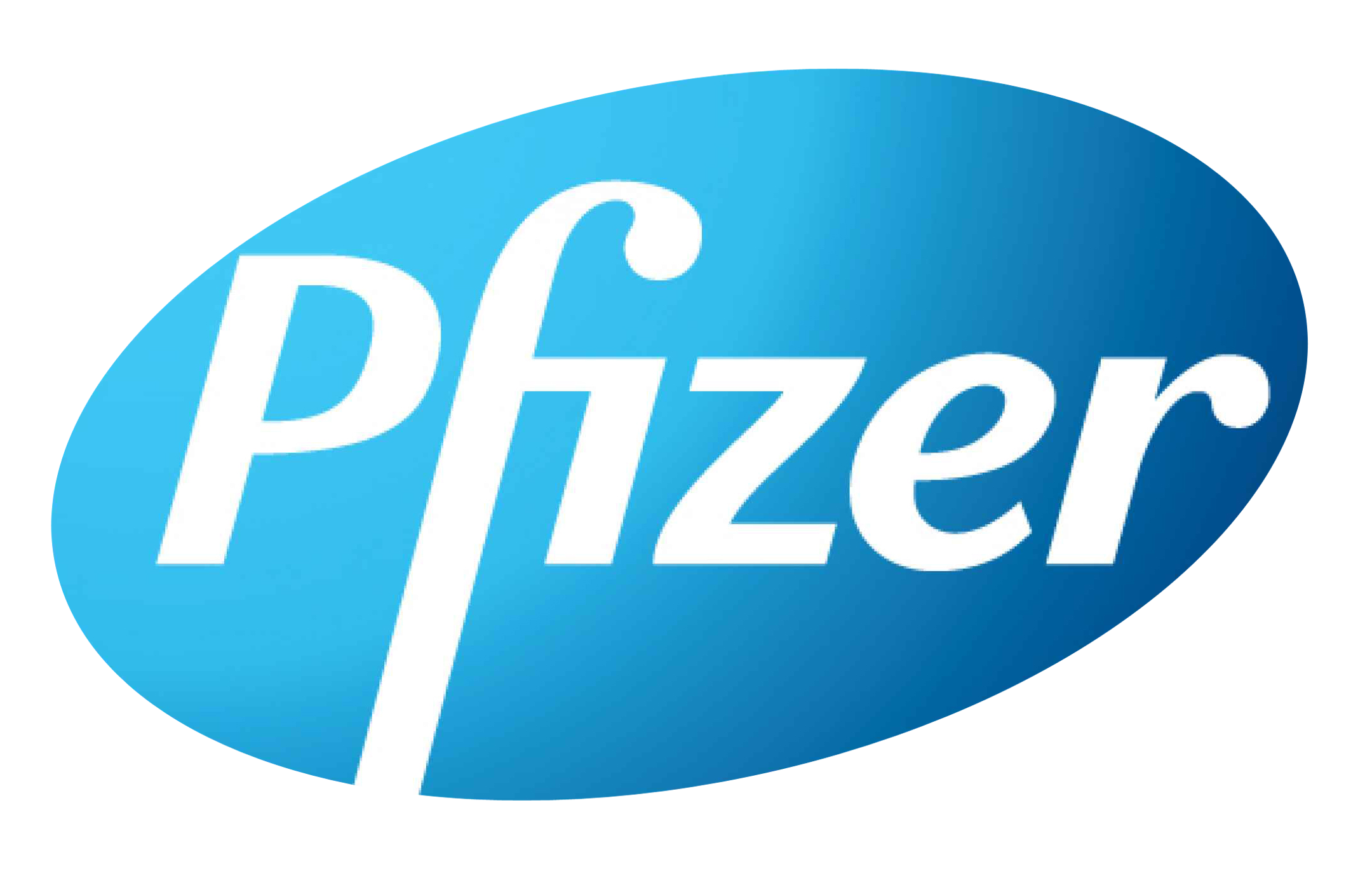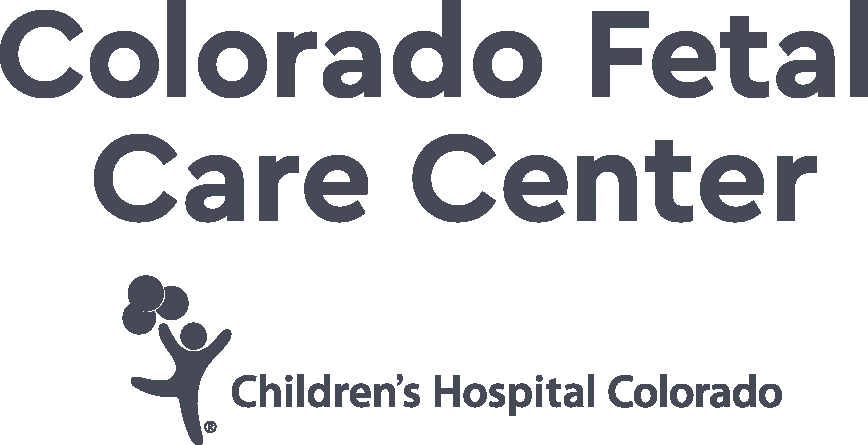Serving our Community
With 20 locations, including Telehealth sites, throughout Colorado and Wyoming.CU Anschutz Division of Maternal-Fetal Medicine
CU Anschutz Division of Maternal-Fetal Medicine
CU Anschutz Division of Maternal-Fetal Medicine
CU Anschutz Division of Maternal-Fetal Medicine
Welcome to the University of Colorado Anschutz Division of Maternal-Fetal Medicine. We provide clinical, educational and research services as part of the University of Colorado Anschutz Department of OB-GYN. In partnership with the Colorado Fetal Care and UCHealth, we offer the entire spectrum of maternal and fetal care services with an advanced academic focus. We provide women with the full range of obstetric and maternal medicine expertise necessary to treat any complication a high-risk mother might face in her pregnancy.
Clinically, we provide full prenatal care, maternal and fetal disease consultation, prenatal diagnosis, and genetic counseling. We currently support over a dozen clinical sites in Colorado and Wyoming. We are also proud to support the Children’s Hospital of Colorado's Colorado Fetal Care Center (CFCC) which specializes in fetal diagnosis and in utero intervention.
We are dedicated to the development of highly successful Maternal-Fetal Medicine fellows. We provide critical high-risk obstetrics education to the University of Colorado Anschutz residents and medical students both on the wards and in classroom settings. We have strong basic science and clinical research programs and work collaboratively with the Division of Reproductive Sciences and other divisions across the University of Colorado Anschutz.

CU Anschutz Division of Maternal-Fetal Medicine is committed to improving the health of pregnant women and their babies through clinical, translational, and basic research. Research interests of the MFM division range from innovative mechanistic studies underlying uterine and placental function to state-of-the-art sonographic evaluation of fetal consequences of growth restriction to cutting-edge observational, quality improvement, and clinical trials encompassing the field of maternal-fetal medicine.
The division has strong collaborative research with other departments and entities including the Children’s Hospital Colorado Fetal Care Center, Perinatal Research Center, and the Departments of Psychiatry, Infectious Disease, Medicine (Endocrinology) and Pediatrics.
For more details, please click on the categories below.
Covid-19 and Pregnancy at University of Colorado Hospital
Complication rates of women diagnoses with COVID-19 in pregnancy
The early and late contribution of fasting and postprandial triglycerides on newborn subcutaneous and intrahepatic fat in obese pregnancies
This prospective observational study of 70 women (BMI 28-40) in a community setting tests the hypothesis that FTG/PPTG are stronger predictors of newborn subcutaneous and intrahepatic fat than glucose or other known risk factors.
Learn More
PI: Linda A Barbour, MD, MSPH,
Funding Source: American Diabetes Association Innovative Clinical and Translational Science
RCT Intervention Targeting Elevated Triglycerides with a Point-of-Care Meter and Omega-3 Fatty Acids to Normalize Triglycerides and Fetal Growth
This pilot study aims to test the hypothesis that targeting FTG/PPTG using an FDA-approved POC TG meter and a randomized intervention of 4g DHA/EPA per day (vs. control) early in OW/OB pregnancies will blunt the gestational rise in TG and reduce fetal overgrowth and newborn adiposity.
Learn More
PI: Linda A Barbour, MD, MSPH
Funding Source: Harold Hamm Diabetes Center/Presbyterian Health Foundation Team Science Grant Pilot
Effects of High Altitude on AMPK Activation and PPARy Regulation
Perelman Fetal Growth Restriction Study
Patients who fetuses are undergrown (an estimated fetal weight by ultrasound below the 10th percentile) have been recruited to have a variety of ultrasound - related tests to predict how well they adjust after birth to inadequate nutrition and oxygen before birth.
Learn More
PI: John Hobbins, MD
Funding Source: The Perelman Family Foundation
Oxidative stress, uterine blood flow, and intrauterine growth restriction
Uterine blood flow increases dramatically to supply nutrients and oxygen to the developing fetus and growing uterus. A major factor controlling uterine blood flow is the nitric oxide dependent response to estrogen stimulation. We have identified a novel role for intracellular uterine artery glutathione in the physiologic upregulation of uterine artery flow with the goal of identifying new opportunities to prevent fetal growth restriction and preeclampsia.
PI: K. Joseph Hurt, MD, PhD, Principal Investigator
Learn more about the Preterm Labor Research Laboratory (aka Hurt Lab)
Funding Source: SMFM-AAOGF Scholar Award
Comparing subcutaneous fat mass ratios in normally grown vs fetal growth restriction patients
Marijuana use during pregnancy and fetal growth
This study is a retrospective chart review aimed at identifying whether pregnancy marijuana use increases the risk of fetal growth restriction, and if there are factors that mitigate or exacerbate this risk. The ultimate goal of this study is to develop clinical care recommendations related to marijuana use during pregnancy.
Mediators of impaired fetoplacental angiogenesis in severe fetal growth restriction
Fetal growth restriction (FGR) is the second-leading cause of perinatal morbidity and mortality, and these fetuses are at significant risk for adverse perinatal and long-term outcomes. This research is relevant to public health as it will establish the mechanisms responsible for abnormal placental blood vessel formation that is specifically and highly associated with poor outcome in growth restriction. The knowledge gained from this research project is vital for the eventual development of preventative and therapeutic strategies for FGR.
Learn More
PI: Emily Su, MD, MSCI
Learn more about the Su Lab
Funding Source: the National Institutes of Health
Sonographic measurements of fetal mass in the third trimester
Ultrasound is widely used in obstetrics for pregnancy dating, anatomic assessment and estimation of fetal weight. We seek to investigate 2-dimensional measurements of lean mass as well as fat mass in normal-weight fetuses compared with fetuses with IUGR using standard biometry images already used in conventional practice.
Comparison of noninvasive genetic screening methods among low-risk pregnant women
Effects of High Altitude on AMPK Activation and PPARy Regulation
Chronic hypertension and pregnancy (CHAP)
The Chronic Hypertension and Pregnancy (CHAP) Project is a large pragmatic multi-center randomized trial designed primarily to evaluate the benefits and harms of antihypertensive therapy for mild chronic hypertension in pregnancy to a goal <140/90 mmHg (as recommended for the general population in the US) compared with ACOG's current policy to withhold treatment unless hypertension is severe. The trial will be conducted in multiple experienced research-oriented Ob/Gyn departments in the United States.
Learn More
PI: Emily Su, MD, MSCI
Learn more about the Su Lab
Funding Source: the National Institutes of Health/National Heart Lung Blood Institute
Identification and management of obstetric lacerations
This is a Quality Improvement project utilizes a validated a survey instrument to assess categorization, identification, prevention, and management of obstetric trauma after vaginal delivery. We collaborate with provider groups in the USA and UK to characterize gaps in knowledge and to develop and test targeted educational materials.
PI: K. Joseph Hurt, MD, PhD
Learn more about the Preterm Labor Research Laboratory (aka Hurt Lab)
Unplanned cesarean and associated morbidity in low risk patients under midwifery or obstetrician care: A retrospective cohort study
The aims of this research are to characterize low risk women who delivered at University of Colorado between 2013 – 2018, compare the rate of labor interventions and mode of delivery between midwives and obstetricians, and evaluate adverse maternal and neonatal outcomes for low risk patients managed by midwives compared to obstetricians.
Perelman Fetal Growth Restriction Study
Patients who fetuses are undergrown (an estimated fetal weight by ultrasound below the 10th percentile) have been recruited to have a variety of ultrasound - related tests to predict how well they adjust after birth to inadequate nutrition and oxygen before birth.
Learn More
PI: John Hobbins, MD
Funding Source: The Perelman Family Foundation
Double-blind Trial of Phosphatidylcholine Supplementation during Pregnancy: Impact on Attention and Social Withdrawal at 4 years of Age
This randomized-controlled trial focuses on the dietary supplement called phosphatidylcholine (PC) and its potential to improve early brain development in children whose mothers were given the supplement during pregnancy.
Learn More
PI: M. Camille Hoffman, MD, MSc, Principal Investigator
Funding Source: The Institute for Children's Mental Disorders
Maternal fat signals regulating uterine contractility and parturition
Fat tissues produce a number of signaling molecules that can influence uterine contractions, and it is well known that obese women show predictable differences in labor onset or the response to induction agents. We have identified one key signal called adiponectin that can influence the rate and strength of uterine contractions. We study the basic mechanisms by which adiponectin may influence labor in order to identify new approaches to prevent preterm birth.
PI: K. Joseph Hurt, MD, PhD
Learn more about the Preterm Labor Research Laboratory (aka Hurt Lab)
Funding Source: Ferring Innovation Grant
The early and late contribution of fasting and postprandial triglycerides on newborn subcutaneous and intrahepatic fat in obese pregnancies
This prospective observational study of 70 women (BMI 28-40) in a community setting tests the hypothesis that FTG/PPTG are stronger predictors of newborn subcutaneous and intrahepatic fat than glucose or other known risk factors.
Learn More
PI: Linda A Barbour, MD, MSPH,
Funding Source: American Diabetes Association Innovative Clinical and Translational Science
Maternal fat signals regulating uterine contractility and parturition
Fat tissues produce a number of signaling molecules that can influence uterine contractions, and it is well known that obese women show predictable differences in labor onset or the response to induction agents. We have identified one key signal called adiponectin that can influence the rate and strength of uterine contractions. We study the basic mechanisms by which adiponectin may influence labor in order to identify new approaches to prevent preterm birth.
PI: K. Joseph Hurt, MD, PhD
Learn more about the Preterm Labor Research Laboratory (aka Hurt Lab)
Funding Source: Ferring Innovation Grant
Preconception Counseling: Prospective evaluation of subsequent pregnancy outcomes
The goal of this study is to develop clinical care recommendations for improved preconception care and to provide data to investigate the successes and limitations of preconception services. Eligible participants will be identified when making a medical appointment at the Department of Obstetrics and Gynecology, MFM Preconception Clinic.
Preconception Counseling: Prospective evaluation of subsequent pregnancy outcomes
The goal of this study is to develop clinical care recommendations for improved preconception care and to provide data to investigate the successes and limitations of preconception services. Eligible participants will be identified when making a medical appointment at the Department of Obstetrics and Gynecology, MFM Preconception Clinic.
Identification and management of obstetric lacerations
This is a Quality Improvement project utilizes a validated a survey instrument to assess categorization, identification, prevention, and management of obstetric trauma after vaginal delivery. We collaborate with provider groups in the USA and UK to characterize gaps in knowledge and to develop and test targeted educational materials.
PI: K. Joseph Hurt, MD, PhD
Learn more about the Preterm Labor Research Laboratory (aka Hurt Lab)
Reducing Fetal Exposure to Maternal Depression to Improve Infant Risk Mechanisms (R01 MH 109662)
Maternal depression is one of the most common prenatal complications and has profound implications for both the mother and the developing child. The Care Project is a large randomized control trial that is testing whether reducing maternal depressive symptoms during pregnancy also decreases the child's risk for later development of anxiety and depression using a psychotherapy intervention called MOMCare (interpersonal therapy, an empirically supported intervention for prenatal depression.
PI: M. Camille Hoffman, MD, MSc
Funding Source: NIMH (R01MH109662)
Concentrating in a Loud Crowd: Distractions in the Obstetrical Ultrasound Exam
The goal of the survey was to determine what types of distractions are present and to what degree these distractions affect the Sonographer, if there are protective demographic or policy variables which mitigate distractions, to gauge if Sonographers feel that further protections should be in place to safeguard their ability to perform high quality medical exams, and to identify areas for improvement in mitigating distractions in the obstetrical ultrasound exam.
Sonographic measurements of fetal mass in the third trimester
Ultrasound is widely used in obstetrics for pregnancy dating, anatomic assessment and estimation of fetal weight. We seek to investigate 2-dimensional measurements of lean mass as well as fat mass in normal-weight fetuses compared with fetuses with IUGR using standard biometry images already used in conventional practice.
Maternal fat signals regulating uterine contractility and parturition
Fat tissues produce a number of signaling molecules that can influence uterine contractions, and it is well known that obese women show predictable differences in labor onset or the response to induction agents. We have identified one key signal called adiponectin that can influence the rate and strength of uterine contractions. We study the basic mechanisms by which adiponectin may influence labor in order to identify new approaches to prevent preterm birth.
PI: K. Joseph Hurt, MD, PhD
Learn more about the Preterm Labor Research Laboratory (aka Hurt Lab)
Funding Source: Ferring Innovation Grant
Rate of short cervix in women with a history of prior preterm delivery between 20 weeks and 34 weeks versus prior preterm delivery between 34 weeks and 37 weeks
Preterm birth is the leading cause of neonatal morbidity and mortality, and it has been shown that cervical shortening is a strong indicator of preterm births. Placement of cerclage for cervical insufficiency has been historically controversial. This is a retrospective cohort study looking at the rate of cervical shortening in a cohort of women who had a preterm delivery prior to 34 weeks compared to a cohort of women who had preterm delivery between 34 and 37 weeks.
Marijuana use during pregnancy and fetal growth
This study is a retrospective chart review aimed at identifying whether pregnancy marijuana use increases the risk of fetal growth restriction, and if there are factors that mitigate or exacerbate this risk. The ultimate goal of this study is to develop clinical care recommendations related to marijuana use during pregnancy.
Concentrating in a Loud Crowd: Distractions in the Obstetrical Ultrasound Exam
The goal of the survey was to determine what types of distractions are present and to what degree these distractions affect the Sonographer, if there are protective demographic or policy variables which mitigate distractions, to gauge if Sonographers feel that further protections should be in place to safeguard their ability to perform high quality medical exams, and to identify areas for improvement in mitigating distractions in the obstetrical ultrasound exam.
Sonographic measurements of fetal mass in the third trimester
Ultrasound is widely used in obstetrics for pregnancy dating, anatomic assessment and estimation of fetal weight. We seek to investigate 2-dimensional measurements of lean mass as well as fat mass in normal-weight fetuses compared with fetuses with IUGR using standard biometry images already used in conventional practice.

Maternal-Fetal Medicine Fellowship
The CU Anschutz Maternal-Fetal Medicine Fellowship is ACGME accredited and designed to prepare fellows for an academic career and to develop the clinical skills required to serve as a perinatal consultant. The Department of Obstetrics and Gynecology is well funded and serves as one of the centers for the NIH Women’s Reproductive Health Research grants and is one of 14 U.S. centers for the NIH Maternal-Fetal Medicine Unit Networks for perinatal research.
CU Anschutz Maternal-Fetal Medicine, Boulder
Boulder Community Hospital Foothills Campus
4747 Arapahoe Avenue
Boulder, CO 80303
Phone: (303) 415-7544
Fax: (720) 854-7520
CHCO North: CU Anschutz Perinatal Center
Children's Hospital Colorado, North Campus
469 State Highway 7, Llama Floor (2nd Floor)
Broomfield, CO 80023
Phone: (720) 478-5545
Fax: (720) 777-7960
CU Anschutz John C. Hobbins Perinatal Center
1875 Lawrence Street, Suite 350
Denver, CO 80202
Phone: (303) 315-6100
Fax: (303) 468-3481
CU Anschutz Maternal-Fetal Medicine, Anschutz
UCHealth
1635 Aurora Court, 3rd Floor
Aurora, CO 80045
Phone: (720) 848-1060
Fax: (720) 848-184
Rocky Mountain Perinatology
1107 S Lemay Avenue, Suite 410
Fort Collins, CO 80524
Phone: 303-315-6100
Fax: (970) 482-1973
1107 S Lemay Avenue, Suite 410
Fort Collins, CO 80524
Phone: 303-315-6100
Fax: (970) 482-1973
CU Anschutz Maternal-Fetal Medicine, Greeley
1715 61st Avenue
Greeley, CO 80634
Phone: (970) 336-1500
Fax: (970) 336-1505
Littleton Perinatal Center
7720 S. Broadway, Suite 190
190 Littleton, CO 80122
Phone: (303) 315-6100
Fax: (303) 315-6056
7720 S. Broadway, Suite 190
190 Littleton, CO 80122
Phone: (303) 315-6100
Fax: (303) 315-6056
Parker Perinatal Center
9397 Crown Crest Boulevard
Alpine Suite 310
Parker, CO 80138
Phone: (303) 315-6100
Fax: (303) 840-4713
High Country Healthcare
360 Peak One Drive, Suite 260
Frisco, CO 80443
Phone: (970) 668-5771
Fax: (970) 668-2197
CFCC: Colorado Fetal Care Center
Children's Hospital Colorado, Anschutz Medical Campus
13123 E. 16th Avenue
Aurora, CO 80045
Phone: (855) 413-3825
Fax: (720) 777-7960
Sterling Telehealth
Sterling Regional MedCenter
1405 S. 8th Ave, Ste 103
Sterling, CO 80751
Phone: (970) 522-3304
Fax: (970) 522-4615
Laramie Wyoming Telehealth
Ivinson Medical Group - Women's Health Clinic
255 N. 30th Street
Laramie, WY 82072
Phone: (307) 755-4540
Fax: (307) 755-4539
Montrose Colorado Telehealth
Montrose Regional Health
3330 S. Rio Grande Ave Suite 200
Sterling, CO 80751
Phone: (970) 249-6737
Yampa Telehealth
Yampa Valley Medical Center
1024 Central Park Dr.
Steamboat Springs, CO 80487
Phone: (970) 879-3738
Fax: (970) 870-6441
Experts in our Field
Including 24 Maternal-Fetal Medicine Providers, 2 Genetic Counselors and 2 Physician Assistants.Outpatient Visits Per Year
Telehealth: 1600
CFCC: 2700
MFM locations: 20,550
25 + Active Research Studies
24/7 MFM Phone Line Consultations
370 per year
A Trusted Referral Partner
90% of our referral partners consider us to be a valued and trusted partner.

















































